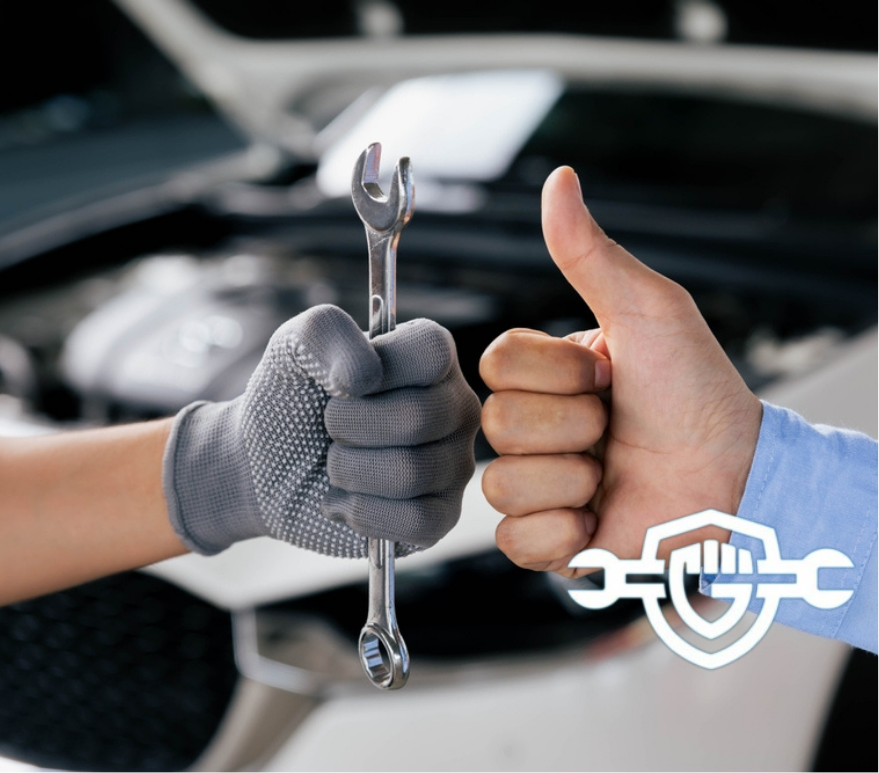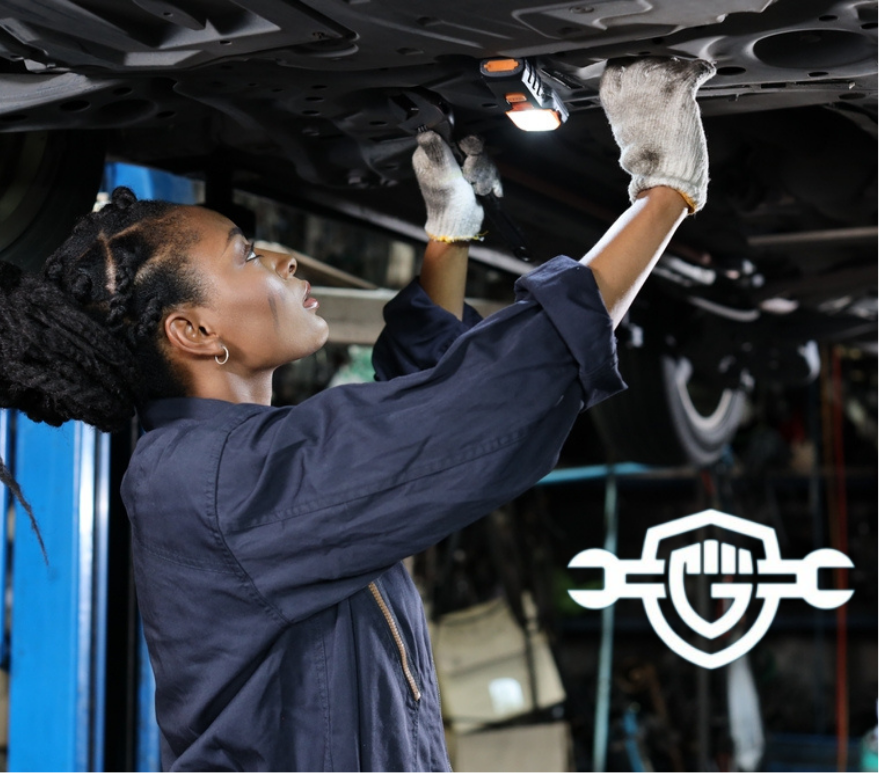12 Signs of a Bad Fuel Pump
Published on
September 18, 2025
.png)
A fuel pump moves gas from the tank to your engine. When it starts to fail, your car will show it. The signs aren’t always obvious at first, but they can quickly lead to bigger problems. Spotting fuel pump symptoms early can help you avoid getting stuck or facing costly repairs later.
1. Engine Sputters at High Speeds
If your car starts to hesitate or jerk while you're driving at highway speeds, it could point to a weak fuel pump. It usually happens when the engine needs more fuel than the pump can deliver. Instead of a smooth ride, it feels like your car is choking for a second or two. Drivers often brush it off the first time, but if it keeps happening, it's worth getting checked out. This is one of the more common fuel pump symptoms.
2. Loss of Power When Accelerating
Pressing the gas pedal should give you a steady boost, not a sluggish crawl. If your car struggles to pick up speed, especially when merging or passing, it might not be getting enough fuel. A failing fuel pump can’t keep up when the engine demands more power. You’ll feel like the car just isn’t responding the way it used to. That kind of lag is easy to notice and often shows up before other fuel pump symptoms.
3. Trouble Starting the Engine
If your engine cranks for longer than usual or takes a few tries to start, the fuel pump might not be delivering the pressure your engine needs. You might hear the starter turning, but the engine doesn’t fire up right away. Over time, this can get worse until the car won’t start at all. It’s an early warning sign that often gets blamed on the battery or starter, but weak fuel delivery is a common reason behind hard starts.
4. Frequent Stalling While Driving
If your car randomly stalls while you’re driving, especially at lower speeds or when idling, a bad fuel pump could be the reason. It might start up again just fine, then shut off a few minutes later. That kind of on-again, off-again behavior usually means fuel isn’t consistently reaching the engine. It can feel like the car just gives up for a second. Stalling like this isn’t just frustrating. It can become dangerous if it happens in traffic.
5. Unusual Whining Noise from the Fuel Tank
A low, constant whining sound coming from the area near your gas tank isn’t normal. A healthy fuel pump makes a quiet hum, but when it starts to wear out, it can get louder. That high-pitched whine often means the pump is struggling or running dry. You’ll usually hear it when the engine is running and the car is at a stop. If that sound wasn't there before and now it is, it’s worth having it checked out.
6. Poor Fuel Efficiency You Can’t Explain
If you’re filling up more often but your driving habits haven’t changed, your fuel pump might not be working right. A failing pump can throw off the fuel pressure, causing the engine to use more gas than it needs. You might not notice it right away, but over time it adds up. If your mileage suddenly drops without a clear reason, it's one of the fuel pump symptoms that can quietly cost you more at the pump. Fuel system cleaning may help in some cases, but if the pump is worn, it needs to be inspected.
7. Sudden Surges in Speed
If your car unexpectedly speeds up without you pressing harder on the gas, that’s not normal. A failing fuel pump can send uneven amounts of fuel to the engine, causing random surges. One second you're cruising steady, the next your car jumps forward. It feels unpredictable, especially during stop-and-go traffic or while slowing down. These surges aren’t just strange. They can affect your control behind the wheel and create risky situations if they happen around other vehicles.
8. Difficulty Climbing Hills or Towing
When your vehicle struggles on hills or feels underpowered while towing, it could be more than just extra weight. A weak fuel pump may not supply enough fuel when your engine is under stress. You might notice the engine bogging down or the vehicle slowing even when you’re pressing the pedal harder. That lack of power becomes most obvious when your car needs a little extra push. If these situations feel harder than they used to, the fuel pump might be to blame.
9. Engine Misfires Under Load
If your engine starts to misfire when you're accelerating, towing, or driving uphill, a failing fuel pump could be behind it. Misfires happen when the engine isn’t getting the right mix of air and fuel. Under load, the demand for fuel increases, and a weak pump might not keep up. You might feel jerking or hesitation, almost like the engine is skipping a beat. Fuel pump symptoms like these usually show up when your car is working the hardest.
10. Car Won’t Start at All
If your engine cranks but never starts, the fuel pump may have stopped working completely. At this point, no fuel is reaching the engine, so it has nothing to ignite. You might still hear the starter clicking or turning, but the engine won’t catch. This usually happens after other warning signs were missed or ignored. If the pump fails, you’re stuck. When your car suddenly won’t start and there’s no clear reason, fuel delivery should be one of the first things checked.
11. Check Engine Light Comes On
When the check engine light shows up, it can mean a lot of different things. One of them is a fuel pump that isn’t keeping a steady pressure. Your car’s sensors notice when fuel delivery is off, and that’s often enough to trigger the warning. You might not feel a difference in how it drives right away, but the light means something isn’t right. If that light appears along with other fuel pump symptoms, it’s time to get it looked at.
12. Overheating Fuel Pump After Long Drives
If your car starts fine but has trouble after longer drives, the fuel pump could be overheating. A worn pump can get too hot the longer it runs, especially if it's working harder than it should. After driving for a while, you might notice stalling, rough idling, or the engine shutting off completely. Letting the car cool down might help it start again, but the issue keeps coming back. Heat-related failure is a clear sign that the fuel pump is wearing out.
When to Reach Out For Help
Spotting these fuel pump symptoms early can save you from getting stranded or facing a repair bill that makes you wince. It’s stressful when your car starts sputtering, stalling, or refusing to start, and it’s not always easy to know if the pump is really to blame.
That’s where GreatWater 360 Auto Care comes in. We deal with fuel delivery issues every day, and our teammates know how to tell the difference between a pump that’s weak, a clogged filter, or something else in the system. With us, you’ll get a straight answer, not a guessing game, and a repair that puts confidence back under the hood.
Don’t wait until your car leaves you stuck in a parking lot or on the side of the road. Schedule an appointment online or call your nearest GreatWater 360 Auto Care shop today, and let us help you keep your fuel system (and your peace of mind) running strong.
.png)

